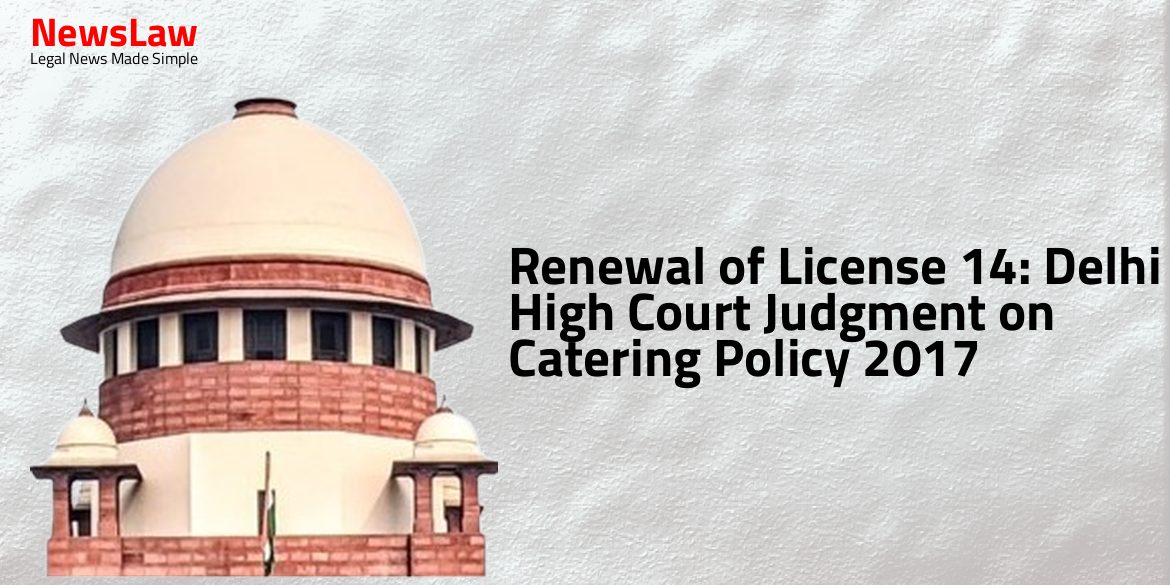Delve into the court’s intricate legal analysis in a recent case involving a challenge to a provision of the Income Tax Act. The High Court’s thorough examination of the relevant legal arguments and precedents sets the stage for a crucial decision on the vires of a key tax law provision. Stay tuned to uncover the court’s reasoning and the impact of its decision on future tax law interpretations.
Facts
- The court reviewed the facts presented by the parties.
- It analyzed the legal arguments made by both sides.
- The court considered the relevant case law in reaching its decision.
- Several key precedents were cited in the judgment.
- The court rendered its decision based on the evidence and arguments before it.
- The original writ petitioner is aggrieved and dissatisfied with the judgment and order dated 11.03.2020 passed by the High Court of Judicature at Madras in Writ Petition No 6284 of 2020.
- The High Court did not entertain the writ petition at this stage and consequently dismissed it without deciding the issue involved in the writ petition on merits.
- As a result, the original writ petitioner has preferred the present appeal against this decision.
Also Read: Judicial Review of Delayed Writ Petition
Arguments
- The original writ petitioner challenged the vires of Section 40(a)(iib) of the Income Tax Act, 1961.
- The assessing officer issued a show cause notice for disallowance of VAT expenditure under Section 40(a)(iib).
- The High Court set aside the assessment order due to violation of natural justice.
- The matter was pending before the authorities when the writ petition was filed.
- The High Court dismissed the writ petition without deciding on the validity of Section 40(a)(iib) as the issue was still sub judice before the Income Tax Authority.
- The original writ petitioner, M/s Tamil Nadu State Marketing Corporation Limited, is aggrieved and dissatisfied with the judgment and order of the High Court in dismissing the writ petition without deciding the vires of Section 40(a)(iib) of the Income Tax Act.
- The appellant has preferred the present appeal after the High Court’s dismissal of the writ petition.
- The High Court’s decision to not decide the vires of Section 40(a)(iib) on merits is deemed unsustainable.
Also Read: Ownership Dispute: Legal Analysis on Admission and Decree
Analysis
- The High Court should have entertained the challenge to the vires of Section 40(a)(iib) of the Income Tax Act at the stage when the show cause notice was issued by the assessing officer.
- The appellant did not have to wait for the assessment proceedings to be finalized before challenging the vires of the provision.
- The stage at which the appellant approached the High Court was deemed appropriate for challenging the vires of Section 40(a)(iib).
- The High Court has the authority to decide on the vires of Section 40(a)(iib) of the Income Tax Act under Article 226 of the Constitution of India.
- The High Court should have decided the issue regarding the vires of Section 40(a)(iib) on merits, regardless of the matter being sub judice before the Income Tax Authority.
- Challenging the vires of a relevant provision is crucial as it goes to the root of the matter.
- The matter is remanded to the High Court for a decision on the writ petition on merits.
- The High Court did not exercise its powers under Article 226 by not deciding the writ petition on merits.
- The High Court failed to decide the challenge to the vires of Section 40(a)(iib) of the Income Tax Act on merits.
- The remand is solely based on the above grounds and no opinion on the legality of Section 40(a)(iib) is expressed.
Also Read: Interpretation of Statutory Limitation under Section 263(2)
Decision
- The impugned judgment and order passed by the High Court has been quashed and set aside.
- The matter is remitted to the High Court for a decision on the writ petition concerning the challenge to the vires of Section 40(a)(iib) of the Income Tax Act.
- The present appeal has succeeded based on the above reasons and actions taken.
Case Title: M/S TAMIL NADU STATE MARKETING CORPORATION LTD. Vs. UNION OF INDIA (2020 INSC 657)
Case Number: C.A. No.-003821-003821 / 2020



